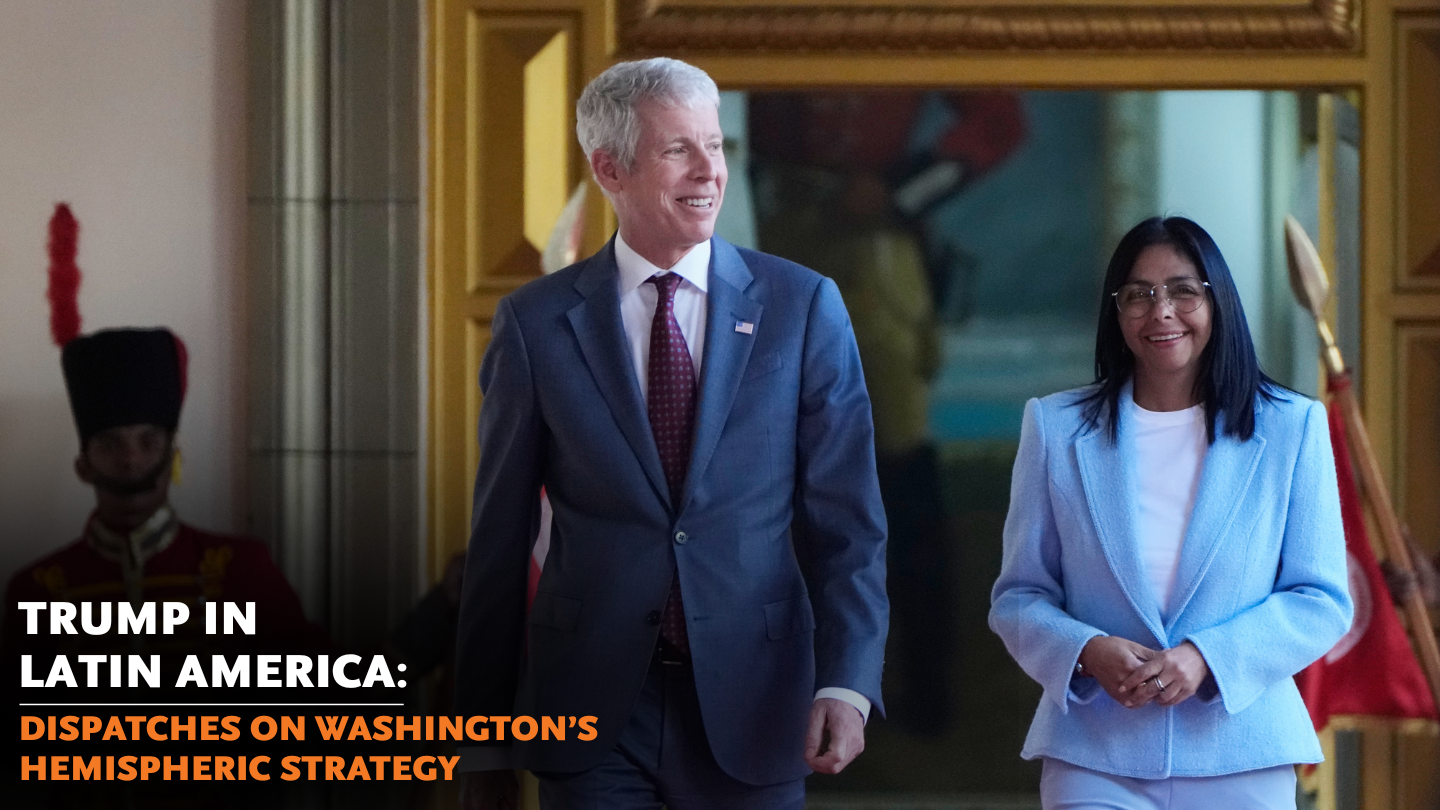Congressional Update: ATPDEA and the U.S.-Colombia Trade Pact
Congressional Update: ATPDEA and the U.S.-Colombia Trade Pact
Signed into law at the end of February, the Andean Trade Preferences Agreement will be extended for 10 months. The real goal, however, is permanent and reciprocal trade agreements.
Leap Year Day may come once every four years, but February 29, 2008, marked a ritual that has become all too common: temporary renewal of the Andean Trade Promotion and Drug Eradication Act (ATPDEA). Signed into law, ATPDEA, which provides duty-free treatment for nearly all exports from Bolivia, Colombia, Ecuador, and Peru, will be extended for an additional 10 months.
Originally implemented in 1992 as the Andean Trade Preferences Agreement, these trade preferences provide an economic complement to counternarcotics efforts in beneficiary countries. Since then, it has helped to create hundreds of thousands of jobs in the region. The extension avoids any lapse in coverage but highlights the uncertainty and challenges of temporary trade provisions—legislation was signed on the day ATPDEA was set to expire.
Signaling strong, bipartisan support, the extension passed in the U.S. House of Representatives by voice vote and in the U.S. Senate by unanimous consent. Members of Congress, during floor debate, noted that trade preferences were not a final solution; rather, they serve as a transitory step toward permanent and reciprocal trade agreements with the United States.
The extension gives legislators more time to debate the future of trade relations with Bolivia and Ecuador and adds cushioning for Peru as the U.S.-Peru Trade Promotion Agreement (TPA) begins its entry into force. At the same time, the already signed U.S.-Colombia TPA has yet to move forward. Recently, Republican members of the Committee on Ways and Means sent a letter to the Committee’s leadership urging a Congressional hearing on the pending agreement.
Pushing Forward: U.S.-Colombia TPA
Despite lack of action in Congress, the White House remains committed to passage of the U.S.-Colombia TPA. In the midst of a tense border situation among Colombia, Ecuador, and Venezuela, President Bush spoke with Colombian President Álvaro Uribe to reaffirm U.S. support for Colombia in its efforts against narco-terrorists. He went on to emphasize that the U.S. can show its support for Colombia by passing the bilateral trade agreement. In addressing Congress, the President noted that “this trade agreement is more than a matter of smart economics, it is a matter of national security.”
Key cabinet officials have also led congressional delegations to Colombia with the hope of building support for passage. In January, Secretary of State Condoleezza Rice led a group of 10 Democratic congressmen, and Secretary of Commerce Carlos Gutierrez recently returned from a bipartisan trip. The delegations, among several in the last few months, aim to build congressional awareness of the economic and security progress achieved in the last decade. Legislators are introduced to everyday Colombians who have directly benefited from increased U.S. trade and are brought to cities like Medellín, which have seen a dramatic improvement in their security.
Discussions between the White House and congressional leaders are ongoing as to the most appropriate time to submit the legislation for a vote.








